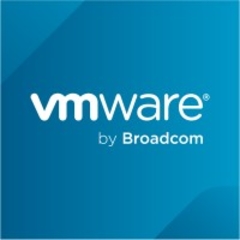What is most valuable?
Virtually anything, it doesn't matter if you're trying to cross the balance and diversifying the application, that can't be done, won't be done or challenging the vendor in that regard or you're looking to scale. Virtualization is almost the only way to scale both vertically and linearly because applications are often bound by linear growth where you need to throw more at it in order to increase capacity. Some of that is where you need to ask for how much resources I can get on the fly. A lot of hot plug, a lot of hot add of memory, being able to be very flexible within an environment where traditional architecture from the past can't do that. Can't take a hard drive, can't take a motherboard out of a computer and put it in another one.
vCenter and VMware's products allow us to look at things and focus on things that we usually didn't have time for because you were architecting solutions based on hardware. This is VMware mix and hardware agnostics, so it's how fast you want to go.
How has it helped my organization?
Being able to itemize by using vApps, vApplications, to do starter priorities so that way if you had dependent NFS and database mounts, applications won't come up prior to that. If you're a one man shop it allows you to turn things on in a way that most people would have to sit there and wait for the next one to go up and the next one and watch the console. Peace of mind, that's what we really use VMware for.
What needs improvement?
I would like to see much more of a, maybe, application intelligence. Unfortunately you have storage vendors who are doing that for us right now with your XtremIO and storage IO and cards inside of something that has some application intelligence. To make MySQL work, SQL work with storage that you can just buy, but VMware being able to characterize database platforms based on use cases of MySQL or SQL, they're very different. Being able to tell the difference between the two and say, "Hey look, this will work here, but it won't work here." That would be nice.
It's challenging using MySQL with vCenter because Linux as a whole is a latency sensitive OS, so you're only as good as your slowest moving part. Doesn't matter if it's disc, memory or processor and sometimes it's shortest path to storage. In order to make MySQL work you need micron second processing and in some cases when you have monolithic sized databases you need to be able to scale that at the same time.
So, unfortunately with the way MySQL plays with storage and the way VMware is right now, it's where I went with the application intelligence, there's a lot of, not taboo if you will, but doesn't really work. You're not going to find a lot of use cases because, unfortunately, our business falls into a different sector if you will, by running Linux as a primary OS.
So, better support for newer Linux kernels would be always great. The fact that they've released open tools and made it the supported platform for just about every Linux distribution out there now sees that they're solving the problem like the VMXNET3 adapter. The driver's not there, the machine's not online. There has been some pitfalls but VMware's been able to, from a company that supplies an application and an OS, solve a lot of those.
They are listening to the customer. It's very difficult to say what's still left because after today you never really know, that could change.
For how long have I used the solution?
Currently we use vCenter Operations Manager which is VCOPS, if you will, and that drives our storage analytics based on what's performing, where our bottlenecks are, how to quickly identify why is it slow? Is it memory? Is it computer? Is it solid state disk? What is the balance of which your application is not performing. We also use vSphere Replication Appliance, along and with vCenter Orchestrator to use the set it up once mentality. The machine is created at primary site A and then with Orchestrator it actually goes through the series of doing the replication, setting it up and then getting that VM set up on the other side. A cheap and easy way of doing it for free.
Buyer's Guide
VMware vSphere
December 2025
Learn what your peers think about VMware vSphere. Get advice and tips from experienced pros sharing their opinions. Updated: December 2025.
879,889 professionals have used our research since 2012.
What do I think about the stability of the solution?
Incredibly stable, so much the point of there's times where we may not know that we're running at half-capacity or full-capacity based on a failover that happens on the back end. That says enough for not only architecting and choosing the right harbor vendors but it also shows that you can actually be failed over on your appliance and business still runs as normal. Things keep working. That constant non-disruptive change if you will.
How are customer service and support?
In terms of evaluation for technical support from VMware, you get what you pay for. You have 24/7 support which allows you to leverage call centers in Ireland and other locations where they surprise me every time. There's always something I learn from every support case I've ever had to open. Even if it's just to kick the tires and make sure we're doing things sort of right.
Which solution did I use previously and why did I switch?
I was luckily enough to come into a virtualization shop. They pretty much didn't want to do the physical server aspect anymore because again it doesn't scale. Walking into a virtualized shop is very easily, winning that battle can be very difficult. I've been on the other side a handful of times. It's really just showing the value, in which case, VMware can fix the problem. You got to be very specific about what problem you're fixing. Is it latency? Is it processing power? Is it being able to provide DR? Is it being able to move your workload to the cloud or move them to a different data center?
It's amazing how only a couple months out of the year you need DR. You don't need it 12 months out of the year. Moving from a standard virtualization shop, having everything on prem, leveraging the cloud, that's the next step. When you ask me about how would I introduce VMware, I think about introducing it now as a cloud based service provider. Not as an on prem, hey, let's scale this very easily.
What other advice do I have?
They've been able to push out little things as the management agent which allow you to work through vCenter and allow you to connect through vCenter to see all your hosts and make automation very, very easy. On top of that they give you the vCenter Applicance so you're no longer tied to a SQL license. You don't have to worry about using SQL Express and running out of space or running out of license space and then re-licensing it. Then they've also solved the upgrade path. Every time a new B, C, D, whatever version of vCenter comes out I don't know how many times the Windows version blows up. Seeing a company being able to say okay you know what? Let's take a step back. Let's use a very similar OS and let's allow you to utilize vCenter just like ESXi, it's the same platform.
Anything that solves a problem. Find out what your biggest problem is and see how VMware can help you solve that problem. There's more principle architects out there that, especially with everything that's being added to the platform, that would be people specialized specifically in things. VMware has that capacity and the capability to help you solve that problem. Getting the vendor involved, maybe not necessarily a service provider but having VMware actually evaluated. They're going to tell you what you're doing wrong.
We operate within a 10% market of people who don't use Windows. You got to find somebody out there and one of the biggest problems you'll find is you won't find MySQL documentation in terms of what people are using and how they're using it. It's this big, there's not a lot of information that people, in a private sector, are even willing to share or in the public sector. They're still trying to figure it out themselves. Finding out who's successful is pretty much who's willing to write your review. That's something I'd like to contribute in terms of what we're doing to put it out there, let other people know who come to you guys and say, "Who else is doing this?" We can't be the first people.
Disclosure: My company does not have a business relationship with this vendor other than being a customer.

















Cool